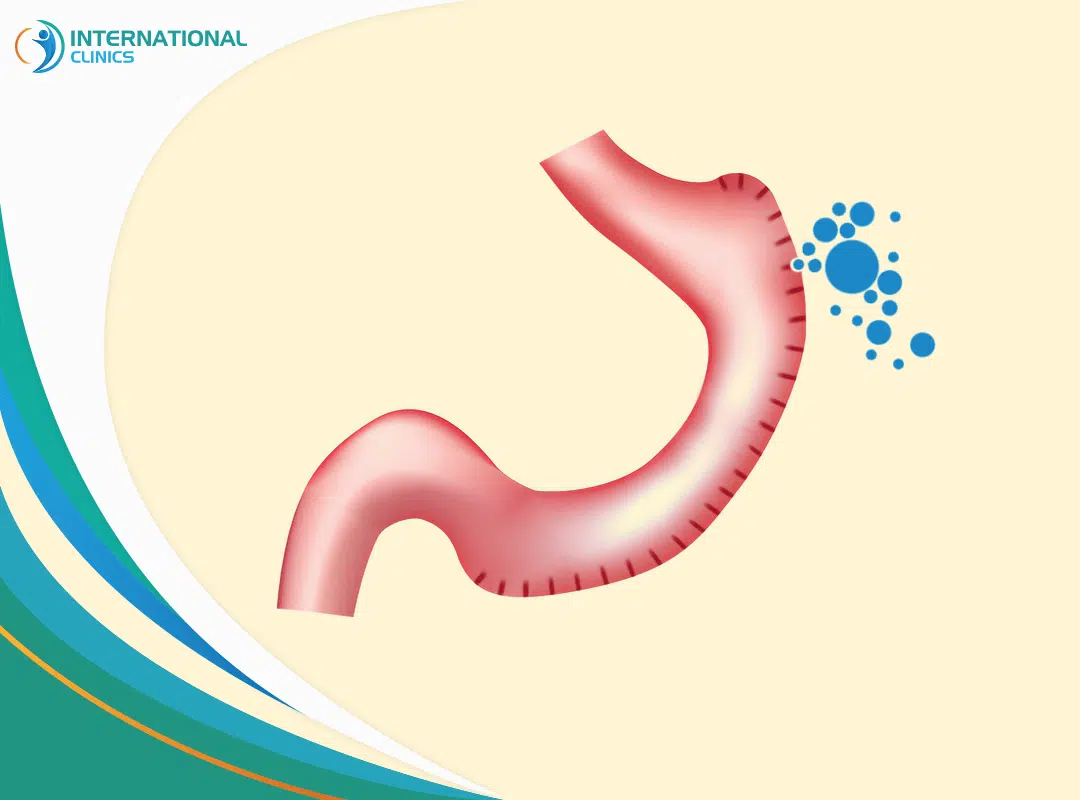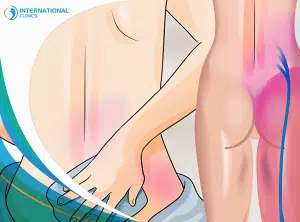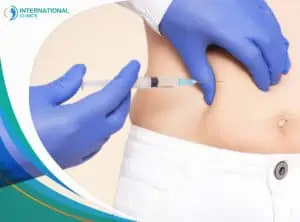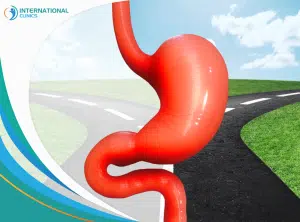Have you ever wondered about the symptoms of gastric sleeve leaks? Imagine you’ve recently undergone gastric sleeve surgery, but suddenly, you start experiencing discomfort and pain in your abdomen. Could it be a gastric sleeve leak?
Gastric sleeve in Turkey, although effective for weight loss, can sometimes lead to complications that require immediate attention. Gastric sleeve leaks are no joke.
They occur when a hole or separation in the staple line is created during the surgery. If left undetected and untreated, these leaks can result in severe complications that may even require additional surgeries.
Detecting the symptoms of gastric sleeve leaks early on is crucial for timely intervention. By recognizing these signs, you can take immediate action and prevent further complications from arising.
Stay tuned as we explore everything you need to know about gastric sleeve leak symptoms!
Early Detection of Leaks After Gastric Sleeve Surgery
Prompt identification of leaks is essential for successful treatment. Close monitoring in the initial post-operative period and Diagnostic tests like contrast studies and CT scans aid in early leak detection.
If left undetected or untreated, leaks can lead to serious infections, abscesses, sepsis, and even death which increases the overall gastric sleeve cost in Turkey.
Monitoring in the Initial Post-Operative Period
Immediately after gastric sleeve surgery, patients are closely monitored to identify any signs of leakage. This involves regular check-ups with the bariatric surgeon and specific diagnostic tests to assess the condition of the stomach.
One common test used for leak detection is an upper endoscopy. During this procedure, a flexible tube with a camera is inserted through the mouth into the stomach to visually inspect for any abnormalities or signs of leakage.
Another diagnostic tool that may be utilized is a gastrointestinal series (GI series), which involves drinking a contrast solution followed by X-rays to highlight any leaks or abnormalities in the gastrointestinal tract.
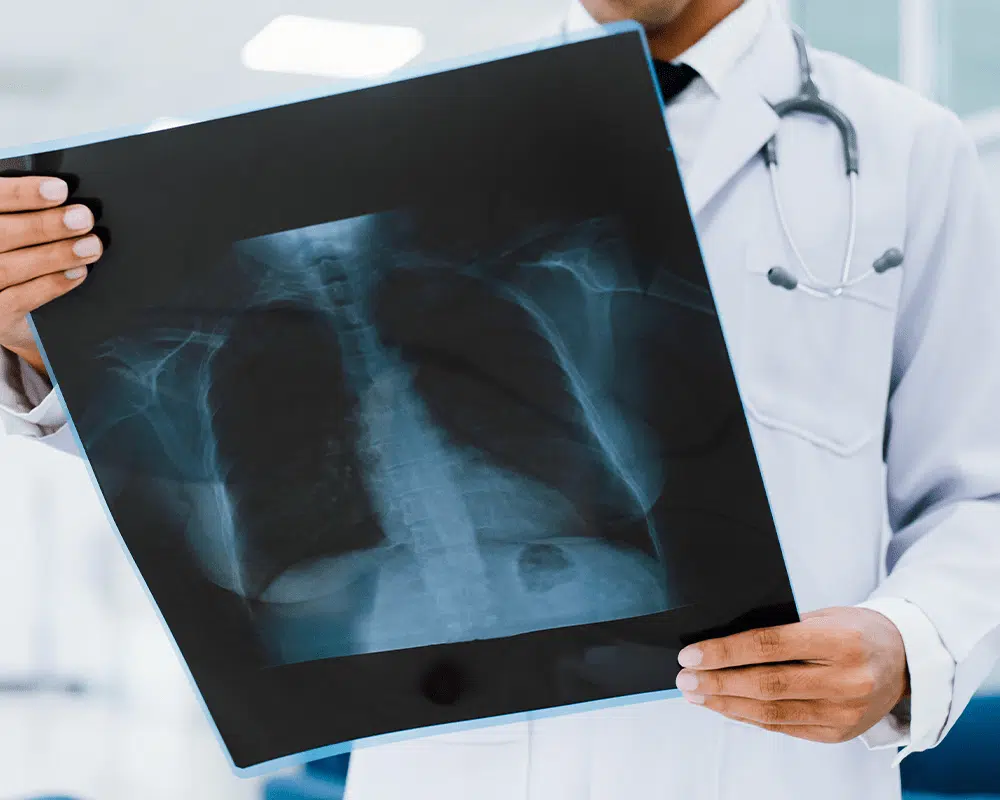
Diagnostic Tests for Leak Detection
Other imaging techniques such as CT scans may be employed to detect leaks after gastric sleeve surgery in Turkey. CT scans provide detailed cross-sectional images that can help identify abnormal fluid collections or areas of inflammation around the surgical site.
The timing of these diagnostic tests plays a crucial role in detecting early leaks before they progress into more severe complications.
Bariatric surgeons typically recommend performing these tests within specific time frames post-surgery to increase their effectiveness in identifying potential leaks.
Timely Intervention and Prevention of Severe Consequences
Once a leak is detected, prompt intervention is necessary to prevent further complications. Depending on the severity of the leak, treatment options may include conservative management with antibiotics, drainage of fluid collections, or in some cases, emergency surgery to repair the leak.
The success rate of treating leaks after obesity surgery in Turkey largely depends on early detection and timely intervention.
By closely monitoring patients in the post-operative period and conducting appropriate diagnostic tests, bariatric surgeons can identify leaks at an early stage when they are more manageable. This helps minimize the risk of severe consequences associated with gastric sleeve leaks and improves overall patient outcomes.
A medical team at the best international standards
Common Symptoms of Gastric Sleeve Leak
Various signs can indicate the presence of a gastric sleeve leak, which can occur after undergoing a gastric sleeve surgery. It is crucial to be aware of these signs as they can help identify potential complications and prevent further health issues.
Persistent Abdominal Pain and Tenderness
- One of the most common symptoms experienced by individuals with gastric sleeve leak is persistent abdominal pain and tenderness after surgery.
The pain may range from mild discomfort to severe and persistent. It can range from mild discomfort to severe, sharp pain that worsens with movement or pressure. The presence of ongoing pain should not be ignored, as it could indicate a potential leak in the gastric sleeve.
Fever, Chills, Nausea, Vomiting
- In addition to abdominal pain, there are several other indicators that may suggest a gastric sleeve leak. These include fever, chills, nausea, vomiting.
If you experience an unexplained increase in body temperature following your surgery, these signs may signify an infection or leakage that requires immediate intervention.
Fluid Accumulation around Surgical Site or in Body Cavities
- Leakage from the gastric sleeve can lead to fluid accumulation in various areas of the body. This fluid may collect around the surgical site or within body cavities such as the abdomen or chest. The presence of excessive fluid can cause swelling and discomfort.
It is important to note that this symptom may not always be visible externally but can still cause significant complications internally.
Rapid Heart Rate
- Increased heart rate can also be an indicator of a gastric sleeve leak. Your heart rate may become faster than usual, even at rest. This rapid heartbeat is often accompanied by other symptoms like fever and abdominal pain.
Chest Pain
- Chest pain can occur due to leakage from the stomach into the chest cavity, leading to irritation and inflammation in the surrounding tissues. If you experience chest pain that worsens with movement or deep breathing, it’s crucial not to ignore it and seek immediate medical attention.
Shortness of Breath
- Shortness of breath might arise if the leaked stomach contents irritate the diaphragm or put pressure on the lungs’ function. Any sudden onset of difficulty breathing should never be taken lightly and requires urgent evaluation by a healthcare professional.
If you experience persistent abdominal pain, tenderness, fever, chills, nausea, vomiting, rapid heart rate, or notice any signs of fluid accumulation, it is crucial to consult your healthcare provider immediately. Early detection and treatment are key to managing gastric sleeve leaks effectively and ensuring a successful recovery.
If a gastric sleeve leak is confirmed, treatment options will depend on the severity of the leak. In some cases, conservative management with antibiotics and close monitoring may be sufficient. However, more severe leaks may require surgical intervention to repair the leak site and prevent further complications.

4 Factors Leading to Gastric Sleeve Leaks
Gastric sleeve leaks can be a concerning complication after undergoing weight loss surgery. Several key factors, including surgical technique, surgeon experience, and patient-related factors, play a significant role in determining the risk of gastric sleeve leakage.
1- Surgical Technique
The surgical technique used during gastric sleeve procedures greatly influences the likelihood of leaks. The creation of a secure staple line is essential in preventing post-operative complications. Inadequate staple line reinforcement or suture technique may increase the risk of leakage. Surgeons must ensure proper alignment and spacing between staples to create a strong seal along the stomach’s new shape.
Meticulous attention should be given to maintaining consistent pressure while stapling to avoid any gaps or inconsistencies along the staple line. By employing advanced surgical techniques and adhering to best practices, surgeons can minimize the chances of gastric sleeve leaks.
2- Surgeon Experience
The experience level of the surgeon performing the gastric sleeve procedure is another critical factor in preventing leaks. Surgeons who have performed numerous successful surgeries are often better equipped to handle potential complications and mitigate risks effectively.
Experienced surgeons possess a deep understanding of anatomy and are skilled at identifying potential areas prone to leakage during surgery. They are more likely to employ precise techniques that result in secure staple lines with minimal room for error. Choosing an experienced surgeon significantly reduces the likelihood of gastric sleeve leaks and increases overall patient safety.
3- Patient-Related Factors
Patient-related factors also contribute to the risk of gastric sleeve leakage following surgery. Certain conditions such as obesity-related comorbidities, smoking, poor nutrition, or weakened immune systems may increase vulnerability to complications like leaks.
Obesity-related comorbidities can impact wound healing processes and weaken tissue integrity, making it more challenging for incisions or staple lines to heal properly. Smoking can hinder the body’s ability to heal and increase the likelihood of complications, including leaks. Adequate pre-operative counseling and patient education are essential in helping individuals understand the importance of optimizing their health before undergoing gastric sleeve surgery.
4- Minimizing Gastric Sleeve Leaks
To minimize the occurrence of gastric sleeve leaks, it is crucial for surgeons to prioritize proper surgical technique, reinforce staple lines adequately, and consider patient-related factors during the evaluation process. By employing these strategies, surgeons can significantly reduce the risk of post-operative complications.
Regular follow-up appointments and close monitoring after surgery also play a vital role in detecting potential leaks early on. Patients should be educated about common symptoms associated with leakage, such as abdominal pain, fever, rapid heart rate, or difficulty swallowing. Prompt recognition of these symptoms allows for timely intervention and minimizes the potential impact of leaks on patient outcomes.
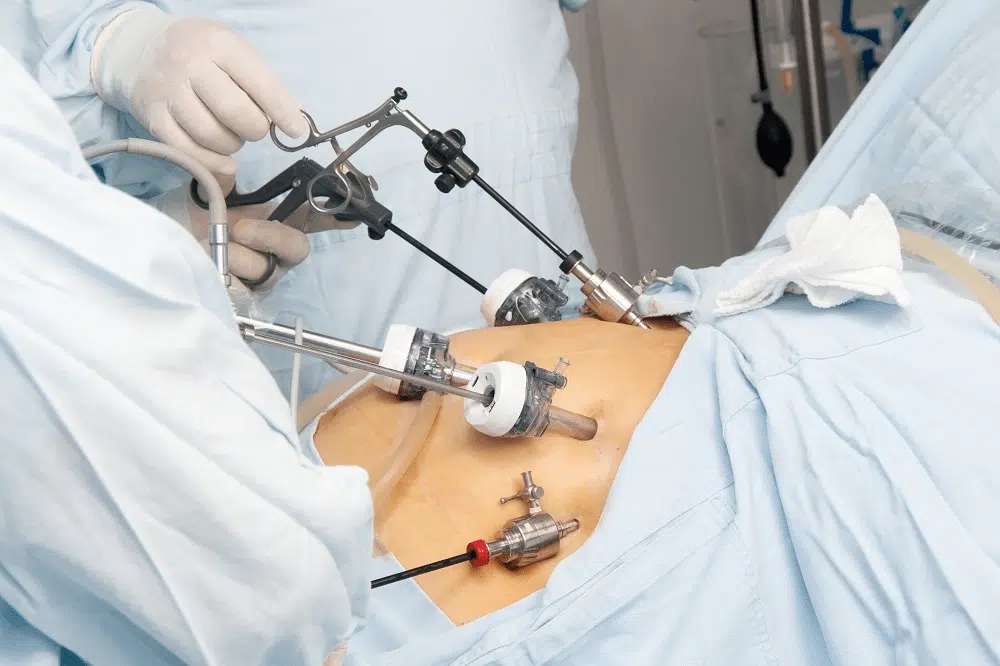
Do you have any questions? You can reach us by Whatsapp right now!
Differentiating Gastric Sleeve Leak Symptoms from Other Conditions
After gastric sleeve surgery, it’s common to experience some level of discomfort. However, it’s important to differentiate between the expected post-operative symptoms and those that could indicate a potential leak. While mild pain and discomfort are typical after such a procedure, persistent or worsening symptoms may be cause for concern.
One of the key indicators that could suggest a gastric sleeve leak is the presence of certain physical symptoms. Other red flags include severe abdominal pain that doesn’t subside with time or medication, unexplained chills or sweating, and sudden changes in blood pressure. While these symptoms alone may not confirm a leak, they are certainly worth investigating further.
Infections in the surgical site or surrounding areas can cause pain and inflammation which might be mistaken for leakage. Similarly, gastrointestinal issues like ulcers or gastritis can produce abdominal discomfort that resembles the signs of a leak. Consulting a healthcare professional helps differentiate between various possibilities.
Delayed Gastric Sleeve Leak Symptoms
Delayed gastric sleeve leak symptoms can occur weeks or even months after undergoing gastric sleeve surgery. Some common delayed symptoms include:
Unexplained Weight Loss
- While some weight loss is expected after this type of surgery, sudden or significant weight loss without any change in diet or exercise habits should raise concerns. If you notice that you are losing weight rapidly without trying, it could indicate a potential issue with your gastric sleeve.
Anemia
- Anemia is another possible sign of a delayed gastric sleeve leak. Anemia occurs when there is a decrease in red blood cells or hemoglobin levels in the body. If you experience fatigue, weakness, pale skin color, dizziness, or shortness of breath along with other symptoms mentioned here, it might be worth investigating further.
Difficulty Swallowing
- Difficulty swallowing could indicate that leaked stomach fluids have entered the esophagus, causing irritation or inflammation. If you find it challenging to swallow food or liquids, it’s important to notify your doctor promptly.
Preventing Gastric Sleeve Leaks
While not all gastric sleeve leaks can be prevented, there are steps that can be taken to minimize the risk. Factors that may contribute to preventing gastric sleeve leaks include:
- Surgical technique: The experience and skill level of the surgeon performing the procedure play a significant role in reducing the risk of complications such as leaks.
- Patient adherence: Following post-operative guidelines provided by healthcare professionals is crucial for proper healing and minimizing potential complications.
- Health conditions: Certain medical conditions like obesity, diabetes, or smoking can increase the risk of complications after surgery. Managing these conditions prior to surgery can help reduce risks.
By addressing these factors proactively and ensuring proper follow-up care post-surgery, patients can actively participate in their own recovery process and potentially reduce their risk of experiencing gastric sleeve leaks.

Now get your free medical consultation
Managing and Treating Gastric Sleeve Leaks
Gastric sleeve leaks can be a serious complication that requires prompt management and treatment. The approach to treating gastric sleeve leaks depends on the severity of the leak and any associated complications.
Treatment Options for Gastric Sleeve Leaks
- Non-surgical interventions: When a gastric sleeve leak is detected, non-surgical interventions are often considered as the initial course of action. These interventions aim to control the leak, prevent infection, and provide nutritional support. Some common non-surgical treatment options include:
- Drainage: Drainage procedures may be performed to remove fluid accumulation around the leaking area, helping to reduce pressure and promote healing.
- Antibiotics: Antibiotics are prescribed to prevent or treat infections that may occur due to the leakage.
- Nutritional support: Adequate nutrition is crucial during the healing process. Nutritional support may involve a combination of oral supplements or feeding through a tube.
- Surgical procedures: In some cases, surgical intervention becomes necessary if conservative management fails or if the leak is severe. Surgical options for treating gastric sleeve leaks include:
- Revisional surgery: This involves repairing or revising the original gastric sleeve surgery to address the leakage issue.
- Endoscopic interventions: Endoscopy allows for minimally invasive procedures such as stent placement or endoscopic suturing to close off the leak site.
Long-Term Effects of Gastric Sleeve Leaks
Untreated leaks can lead to serious long-term consequences for patients’ health. A leak occurs when there is a hole or a tear in the staple line or sutured area where the stomach has been divided during the surgery. If left untreated, these leaks can have severe long-term effects on a patient’s health.
Below is a table summarizing the possible long-term impacts of gastric sleeve leaks on patients’ health.
| Long-Term Effect | Description |
|---|---|
| Malnutrition | When stomach contents leak out before they are properly digested and absorbed by the body, essential nutrients may not be adequately absorbed either. Over time, this malabsorption can lead to deficiencies in vital vitamins and minerals necessary for overall health. |
| Gastrointestinal Irritation | Chronic inflammation and irritation caused by the leak can result in discomfort and potentially lead to gastrointestinal disorders and symptoms. |
| Sepsis | An untreated gastric sleeve leak can cause a severe infection in the abdominal cavity, known as sepsis, which requires immediate medical attention and can have long-term repercussions on organ function. |
| Peritonitis | Leakage of stomach contents into the peritoneal cavity can lead to peritonitis, an inflammation of the abdominal lining, requiring urgent medical intervention and posing significant health challenges. |
| Adhesions | Chronic inflammation from the leak may lead to the formation of adhesions, where tissues and organs stick together abnormally, causing pain and potentially requiring additional surgical interventions. |
| Psychological Impact | Dealing with chronic health issues and complications can lead to anxiety, depression, and decreased quality of life, affecting a patient’s mental well-being. |
Secure your appointment at International Clinics by booking now
Preventive Measures to Avoid Gastric Sleeve Leaks
- Maintain a healthy lifestyle.
- Engaging in regular exercise.
- Choose an experienced surgeon.
- Attend all follow-up appointments.
- educate regarding post-operative care.
- Report any unusual symptoms promptly.
- Stay away from smoking and excessive alcohol.
- Follow pre and postoperative instructions diligently.
Conclusion
In conclusion, understanding the symptoms of a gastric sleeve leak is crucial for patients who have undergone sleeve gastrectomy surgery. While gastric sleeve leaks are relatively rare, they can have severe consequences if left untreated.
In conclusion, being aware of the risks and symptoms associated with anastomotic leak after gastric sleeve surgery is essential for patients considering or undergoing this procedure. By staying informed about potential complications and heeding their bodies’ warning signs, individuals can maximize the benefits of weight loss surgery and enjoy improved long-term health outcomes.

FAQs
Symptoms of a gastric sleeve leak can appear within the first few days after surgery, although they may also manifest several weeks or even months later.
Gastric sleeve leaks are relatively rare, occurring in approximately 1-3% of cases. However, it is important to be aware of the potential risks and symptoms associated with this complication.
Yes, some symptoms of a gastric sleeve leak may resemble those of other gastrointestinal issues or infections. It is crucial to consult with a healthcare professional for an accurate diagnosis.
The long-term effects of a gastric sleeve leak can vary depending on factors such as promptness of treatment and severity of the leakage. Potential complications may include infection, abscess formation, and digestive issues.
To minimize the risk of gastric sleeve leaks, it is important to choose an experienced surgeon, follow preoperative instructions diligently, adhere to postoperative care guidelines, attend regular follow-up appointments, and maintain a healthy lifestyle after surgery.
Read more: Obesity Surgery Cost in Turkey
